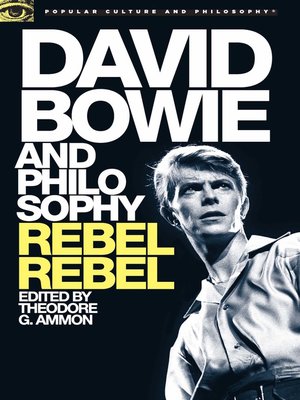David Bowie and Philosophy
ebook ∣ Rebel Rebel · Popular Culture and Philosophy
By Theodore G. Ammon

Sign up to save your library
With an OverDrive account, you can save your favorite libraries for at-a-glance information about availability. Find out more about OverDrive accounts.
Find this title in Libby, the library reading app by OverDrive.



Search for a digital library with this title
Title found at these libraries:
| Library Name | Distance |
|---|---|
| Loading... |
Among the topics explored in David Bowie and Philosophy are the nature of Bowie as an institution; Bowie's work in many platforms, including movies and TV; Bowie's spanning of low and high art, and his relation to Warhol; the influence of Buddhism and Kabuki theater; the recurring theme of Bowie as a space alien, including “Space Oddity" and The Man Who Fell to Earth; the dystopian element in Bowie's thinking, displayed in “1984" and the album Outside; the role of fashion in Bowie's creativity; personal identity as preserved over various divergent personae; the aesthetics of theatrical rock and glam rock; Bowie's public identification with bisexuality and his influence within the LGBTQ community.
Pervasive themes in Bowie's output include change, time, apocalypse, dancing, mind-body dualism, and spirituality. In the dualistic universe that undergirds his lyrics, body consistently wins over mind, but body is nevertheless on the hook of moral responsibility. There is thus an inherent tension: the overwhelming desires of bodily drives versus the repressive institutions such as church and the omnipresent “They" who would have us do otherwise than our body want. The emergent paradox in Bowie is that for all his alleged sexual indulgences, in the end mind trumps body.







